Articles Tagged with #longreads
-

Dispatches
The Demands of Cold Blood
by John DavidsonWhen a crime reporter is told an outlandish account, his first obligation is to establish the facts. But when the story turns out to be a conspiracy, it can knock his sense of duty until it cracks.
-
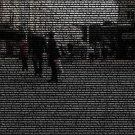
Gonzo Geography
Handheld Time Machines
by Giles TurnbullCities are full of noise and scuffle, and they don’t always reveal their history. Armed with a fistful of maps from 1901 and a smartphone bristling with data-recording apps, one man tries to uncover a city’s secrets.
-

Birnbaum V.
Geraldine Brooks
by Robert BirnbaumOur man in Boston sits down with the Pulitzer-winning novelist to discuss Australian literature, Harvard’s (neglected) charter to educate American Indians, and those residents of Martha’s Vineyard who say no to Chardonnay.
-
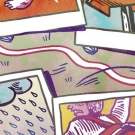
Letters From Spain
We Must Walk the Camino Together
by Michael PearsonFor centuries, the Camino de Santiago has drawn religious pilgrims to northern Spain. But those guys never did it with walkie-talkies, GPS, taxis, and Wonder Bread.
-
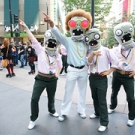
Of Dice and Men
PAX Primer
by Matthew BaldwinEvery year, tens of thousands of gamers descend on Seattle to attend a convention that began as a webcomic, and has grown into the epicenter of gaming culture. An account from this year’s event, which encompassed nearly every imaginable game genre—and a few never before imagined.
-
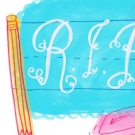
Writing on the Wall
Tempest in an Inkpot
by Graham T. BeckDon’t be fooled by the hand-lettering trend in movie posters and book covers—cursive is dead. Who cares? A million angry commenters around the web who extol the virtues of loops and curls. But the traditional form has a history that’s less than precious.
-
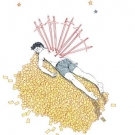
Personal Essays
The Querent
by Alexander CheeFortunetelling is easy to ridicule, frequently misunderstood, and, for some people, extremely powerful. Unfortunately, what’s very tough to predict is what reading futures will do to the person with the cards.
-

Adventures in Health
Mastering the Art of American Eating
by Mike Deri SmithThe USDA recently replaced the almighty food pyramid with a color-coded pie chart. To celebrate our nation’s mixed metaphors about healthy eating, one man decides to spend a month attempting to follow every government recommendation he can find. Nowhere is pie advised.
-

The Future of Publishing
Much Ado About Whatever
by Daniel B. RobertsTao Lin and his band of followers at Muumuu House are some of the most vehemently disliked—and discussed—writers on the internet. Critics call them hip. Haters call them frauds. But their fiction may be just what our digital lives deserve.
-
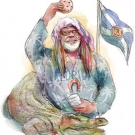
The True Meaning of T-Pain
Tallahassle
by Erik BryanFlorida is America’s most-abused state, and Tallahassee its biggest target for bi-coastal writers who pick low-hanging fruit—rednecks, old people—and wouldn’t know an alligator from their elbow. The slander has gone far enough. On behalf of every Tallahussey and T-Town man, let the corrections begin.
-
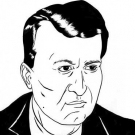
American Letters
The Man Behind the Window
by John WarnerAllan Seager was a student at Oxford when he contracted tuberculosis. What happened next made him one of America’s greatest writers—declared the heir to Anderson and Hemingway—ever to be forgotten. Yet one of Seager’s short stories endures in ways that none of Hemingway’s can match.
-
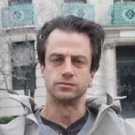
Birnbaum v.
Arthur Phillips, Redux
by Robert BirnbaumOur man in Boston sits down with the extremely likeable Arthur Phillips to chat about everything, including his latest novel.